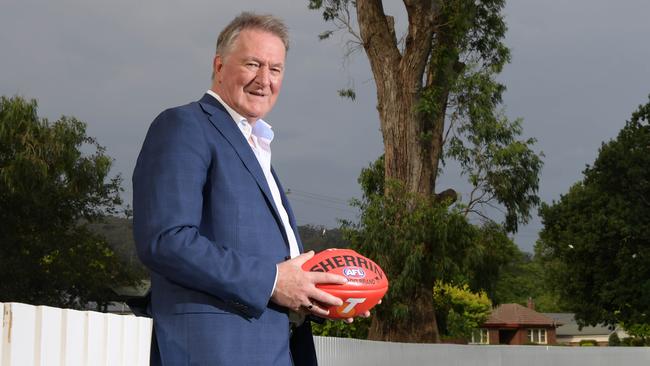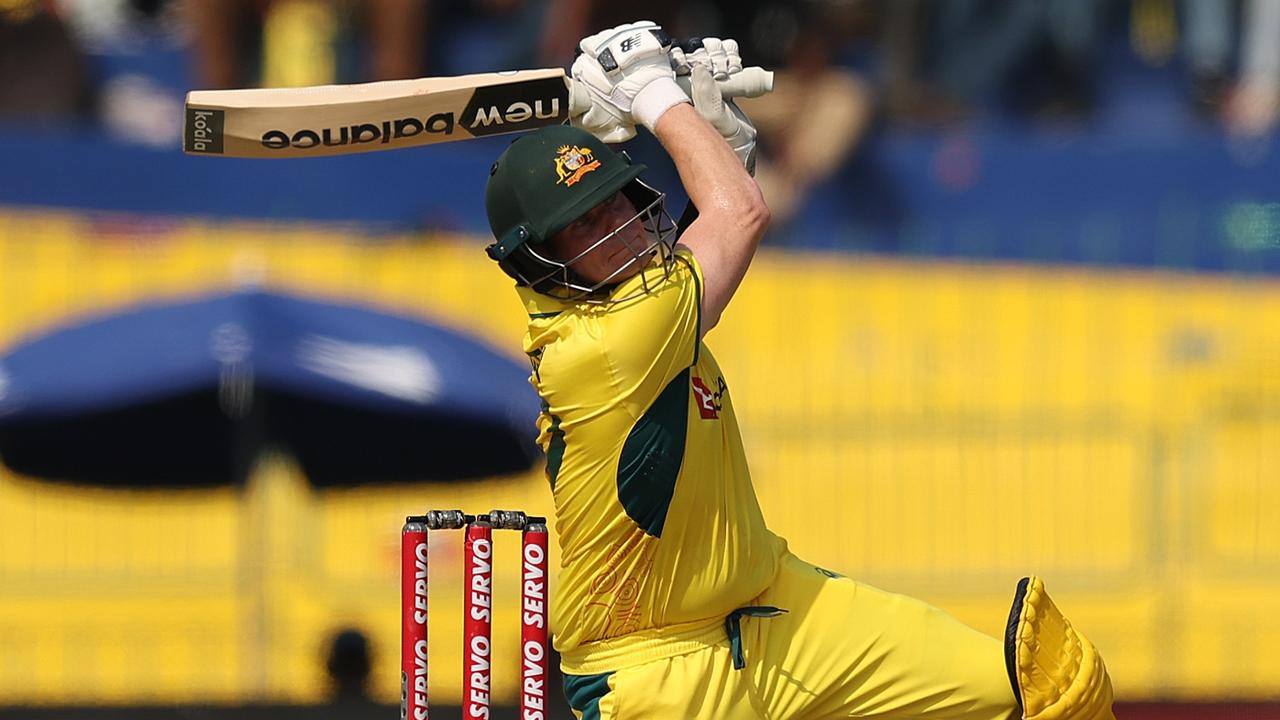Sporting success? The ball’s in our court, warn chiefs
Australian sport will fall behind emerging nations over the next decade unless there is a ‘material increase’ in funding.

Australia will fall behind emerging nations in major international sports over the next decade unless there is a “material increase” in corporate and government funding, the nation’s peak sporting chief has warned.
Sport Australia chairman John Wylie said the rise of Asian, South American and African nations was creating a more competitive international sporting environment, which could threaten Australia’s tag as a world sport powerhouse.
Speaking to The Australian before the unveiling of four new additions to the national sporting body — Paralympian Kurt Fearnley, former Sydney Swans chief executive Andrew Ireland, ARL commissioner Amanda Laing and businesswoman Pippa Downes — Mr Wylie said international sport had become “vastly more competitive” compared with 20 years ago.
“You’ve got countries who are not traditional sporting powers, in many respects, who have invested a lot more in their sporting system and have enjoyed success as a result,” Mr Wylie said.
“And there is no better example of that than the UK.”
With Australia’s cricket and rugby union teams sliding down the international rankings, Mr Wylie said rising powers were “keen to enjoy the soft power that comes with sporting success”.
“In the next 10 to 20 years, developing countries that have not been traditional sporting powerhouses are going to emerge as global sporting powerhouses,” he said.
“We have seen it happen in cricket and we will see it in the Olympics. The success in world sport will be more democratised.
“So the traditional sporting powerhouse countries are going to have to work harder and smarter in order to be successful and maintain their success into the future.
“We think this is tremendously important for Australia. We think sporting success does inspire the young kids to get up and be active and have a go and enjoy all the benefits that physical activity gives them.”
Mr Ireland, a former VFL player for Collingwood, retired as the Swans chief executive last year after 17 years at the helm. Under his tenure, the club grew from a niche audience in rugby league-dominated Sydney to one of the biggest clubs in the AFL.
He said on-field success was a major driver of increases in crowds and grassroots Australian rules football participation in NSW.
“The commonality between the AFL and the Sport Australia role is (that) participation is vitally important,” Mr Ireland said.
“Sport Australia want to help drive participation across all sports and one of the great ways for that to happen is for your elite performers to perform well, and that no doubt rubs off on youngsters.”
Sports Minister Bridget McKenzie said the new commissioners had the expertise to help grow sport in Australia and drive the body to achieve the aims set out in the national sport plan. “The appointments will strengthen the commercial capability of the organisation and have been made at an exciting time for Australian sport as Sport Australia plays a lead role in the delivery of the government’s Sport 2030,” Senator McKenzie said.
The restructuring of the Sport Australia board, including the elevation of marathon champion Steve Moneghetti to vice-chair, comes ahead of the 2020 Tokyo Olympics. Australia’s performances have slid since the 2004 Athens Olympics.
Mr Wylie said the additions to the board would help Sport Australia deliver on the national blueprint, Sport 2030, unveiled by Senator McKenzie in August, which includes ambitions to increase grassroots participation and the performances of elite athletes through reforms to the Australian Institute of Sport.
Mr Wylie refrained from putting figures on funding increases for Australian sports.
The current funding is set at $200 million a year.
He said the body was looking at ways to raise funds through philanthropy and corporate support.
“There should be, and there is, a strong case for an increase in Australia’s sport funding into the future if we want to maintain our place at the top table of world sport,” he said.
Ms Laing, the chief commercial officer at Foxtel, said female participation was an issue that needed to be addressed.
“As we seek to get more Australians moving more often — that has to include girls and women,” Ms Laing said. “There is a dramatic drop-off in teenage girls participating, particularly in team sports, so we need to turn that around.”



